Aavaas Gajurel
GPU Acceleration of Sparse Neural Networks
May 09, 2020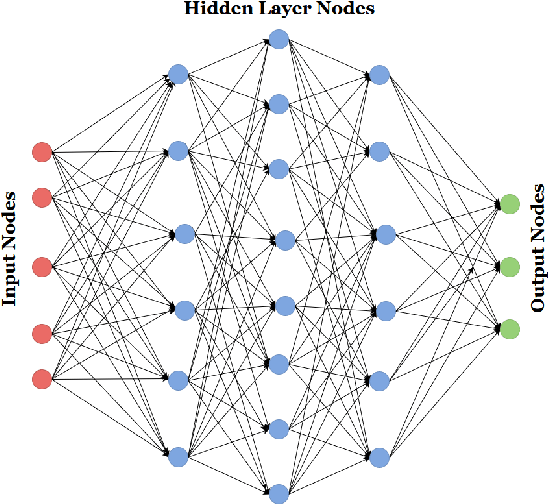

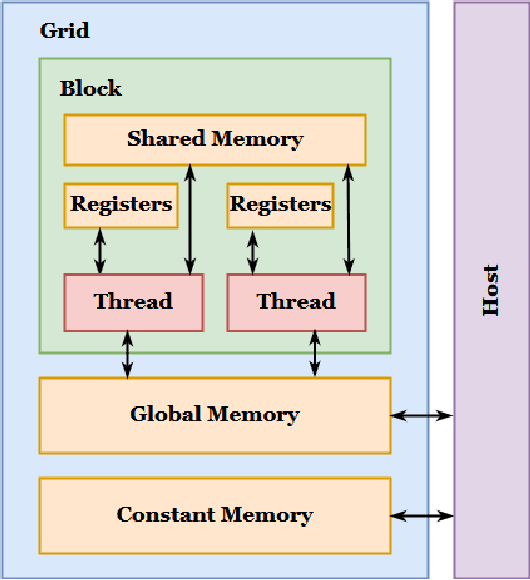
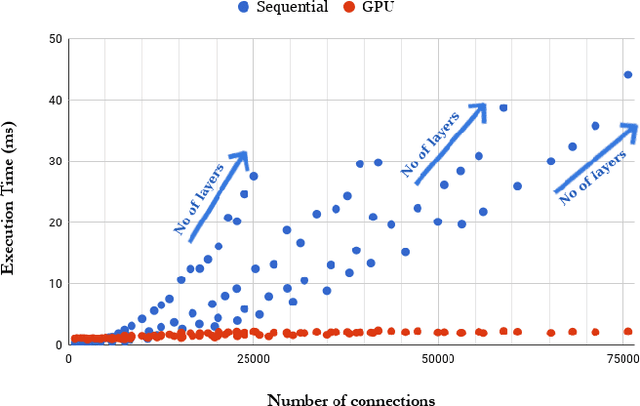
Abstract:In this paper, we use graphics processing units(GPU) to accelerate sparse and arbitrary structured neural networks. Sparse networks have nodes in the network that are not fully connected with nodes in preceding and following layers, and arbitrary structure neural networks have different number of nodes in each layers. Sparse Neural networks with arbitrary structures are generally created in the processes like neural network pruning and evolutionary machine learning strategies. We show that we can gain significant speedup for full activation of such neural networks using graphical processing units. We do a prepossessing step to determine dependency groups for all the nodes in a network, and use that information to guide the progression of activation in the neural network. Then we compute activation for each nodes in its own separate thread in the GPU, which allows for massive parallelization. We use CUDA framework to implement our approach and compare the results of sequential and GPU implementations. Our results show that the activation of sparse neural networks lends very well to GPU acceleration and can help speed up machine learning strategies which generate such networks or other processes that have similar structure.
Neuroevolution for RTS Micro
Mar 27, 2018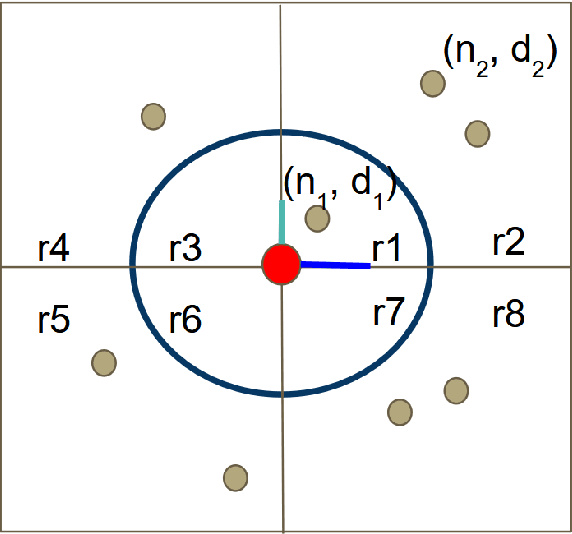
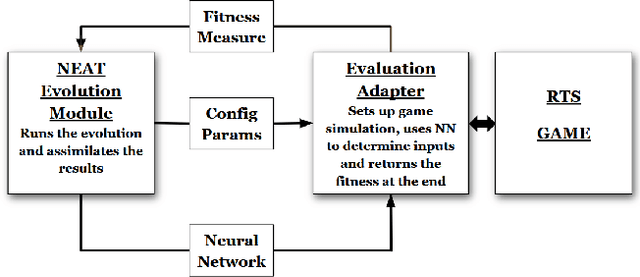
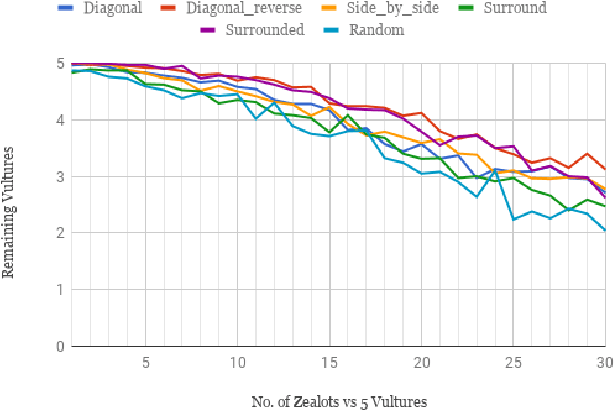
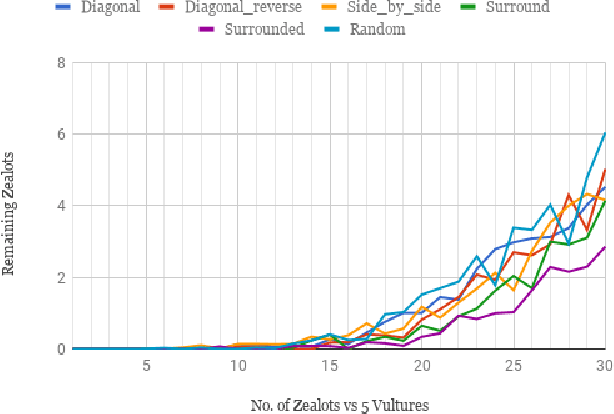
Abstract:This paper uses neuroevolution of augmenting topologies to evolve control tactics for groups of units in real-time strategy games. In such games, players build economies to generate armies composed of multiple types of units with different attack and movement characteristics to combat each other. This paper evolves neural networks to control movement and attack commands, also called micro, for a group of ranged units skirmishing with a group of melee units. Our results show that neuroevolution of augmenting topologies can effectively generate neural networks capable of good micro for our ranged units against a group of hand-coded melee units. The evolved neural networks lead to kiting behavior for the ranged units which is a common tactic used by professional players in ranged versus melee skirmishes in popular real-time strategy games like Starcraft. The evolved neural networks also generalized well to other starting positions and numbers of units. We believe these results indicate the potential of neuroevolution for generating effective micro in real-time strategy games.
 Add to Chrome
Add to Chrome Add to Firefox
Add to Firefox Add to Edge
Add to Edge